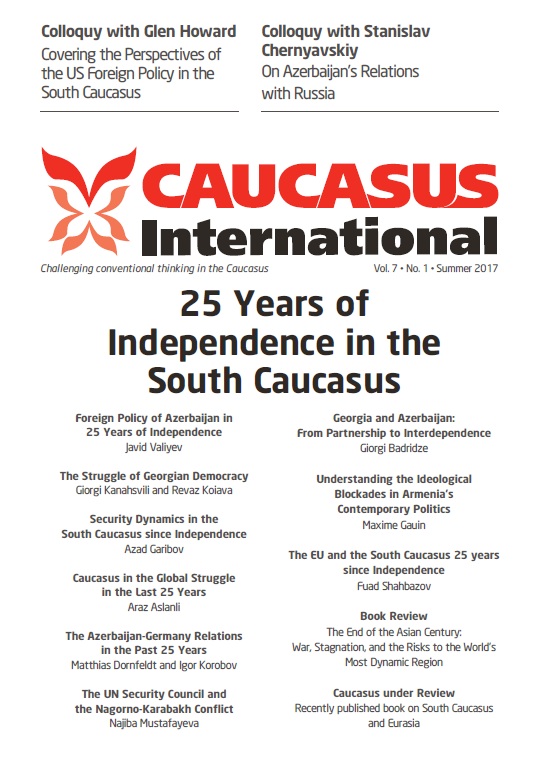The Struggle of Georgian Democracy
The paper aims to review the democratization experience of post-Soviet Georgia. Due to the differences in geography, history, political culture, economy, and governance of each Soviet republic, the transition periods of these countries have eradicated all commonalities. Despite their common problems, the transformations are individual, due to local conditions and circumstances. Georgia’s declared goal is the development of a stable and successful democracy. But how do Georgians understand democracy, and how is it supported via government policy? The social and educational diversity of Georgians shall be taken into consideration in assessing the functioning of judiciary, executive, administrative and legislative bodies. The various aspects of Georgian politics – informal deal making, attitudes of elites, generational specificities, and everyday concerns of citizens preclude the possibilities for generalization. The political culture of Georgia, social relations, local governance, employment problems, and daily political life was determined by the grotesque behavior of the Georgian elite and the Civil War, separatism and Russian intervention. This leads us to Tip O’Neill’s maxim – “All politics is local”.
Latest news
- 03/17/2020 Call for Submission: “Non-Alignment Movement and Its Perspective in International Affairs”. Deadline: 1 July 2020 2626 views
Popular articles
- 02/24/2020 The Role of Irredentism in Russia’s Foreign Policy 2536 views
- 02/24/2020 Construction of sub-national identity vis-à-vis parent state: Gagauz case in Moldova 2218 views
- 02/24/2020 The Conflict in Ukraine - The Geopolitics of Separatism and Divergent Identities (Commentary) 2072 views
- 02/24/2020 The Role of the Soviet Past in Contemporary Georgia 2044 views





